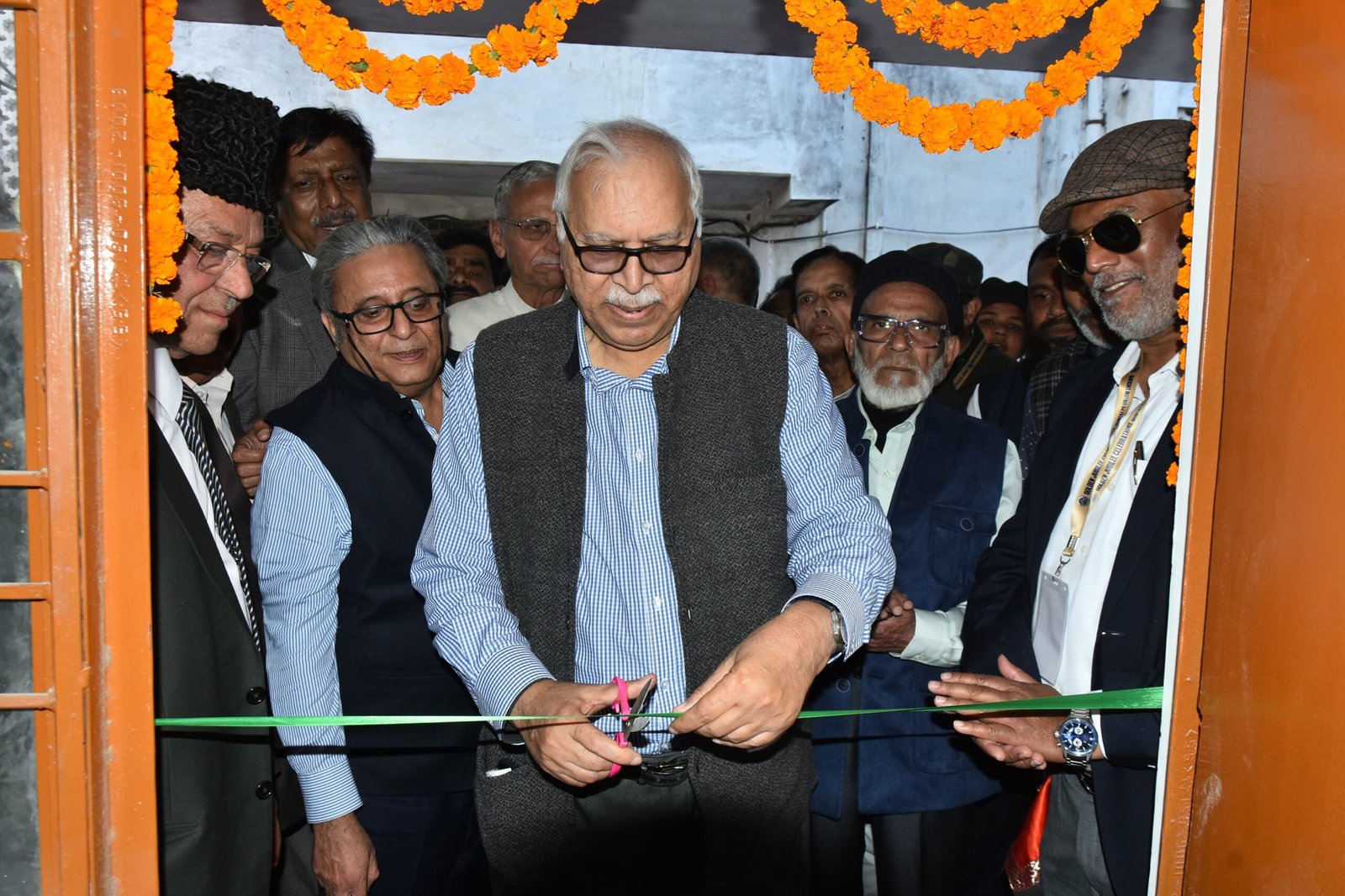Lucknow: Literacy leads to employment, and school education forms the foundation of knowledge. To ensure quality education for all, greater efforts must be made. These views were expressed by former Chief Election Commissioner Dr. S. Y. Quraishi during the Golden Jubilee celebrations of Mumtaz PG College, Daliganj. On this occasion, he, along with other distinguished guests, inaugurated the Alliance for Economic and Educational Development of the Underprivileged (AEEEDU) Common Study Center at the college.
The event, organized under the aegis of Anjuman Islahul Muslimeen in collaboration with AEEEDU, featured a conference on “Education, Culture, and Civilization: A Bridge Between Past, Present, and Future.” Addressing the gathering, Dr. S. Y. Quraishi stated that while the national literacy rate stands at 71%, the literacy rate among Muslims is only 57%, compared to 75% for Christians and 71% for Buddhists. Citing his book Population Myth…, he emphasized that while an educated woman ensures an educated family, Muslim male literacy is 67%, whereas female literacy lags at 50%. He expressed optimism that the collaboration between AEEEDU and the college would lead to more initiatives beyond the newly inaugurated study center.
Welcoming the guests, Anjuman Secretary and College Manager Syed Athar Nabi Advocate called the event a moment of pride, highlighting the progress of educational institutions under Anjuman’s supervision. He noted that the New Education Policy aims to open new dimensions in career-building and employment. Looking ahead to the Golden Jubilee celebrations, he announced that various sports, poetry, qawwali, and drama events would be organized in the coming months.
Former Vice-Chancellor of Aligarh Muslim University, Zameeruddin Shah, stressed the importance of English proficiency, IT skills, and Artificial Intelligence education, warning that falling behind in these areas would be difficult to recover from. He urged the community to focus on primary education, announcing plans to open three Sir Syed National Schools and advocating for similar institutions in every district. He also encouraged Mumtaz College to produce job-ready graduates and strive to become a reputed educational brand like St. Stephen’s College.
Former Lieutenant Governor of Delhi, Najeeb Jung, highlighted that 60% of Mumtaz College’s students are female, which is a positive trend for educational empowerment. He underscored the need for an attitudinal shift in teaching methods, urging educational institutions to work at the grassroots level, integrating political, business, and administrative opportunities for students.
CEO of AEEEDU, Syed Mahmood Akhtar, elaborated on the organization’s goals, which include enhancing teachers’ communication skills, setting up common study centers nationwide, promoting skill development, and launching entrepreneurship programs post-Ramadan with international collaborations. He emphasized that AEEEDU is not only providing a platform for minority development but also focusing on women’s empowerment.

Former MP Shahid Siddiqui delivered an impassioned speech, reminding attendees that the foundation of education movements like Aligarh Muslim University originated in Uttar Pradesh. He stressed the need for skill development, financial management, and marketing education alongside traditional studies. He also pointed out the need for infrastructure improvements in minority educational institutions.
Delhi University Professor Irtiza Karim, who moderated the event, remarked that true backwardness lies in the lack of education. Karnataka-based scholar Hafiz Karnataki called for a structured approach to advancing science and technology education among minorities. Saeed Mustafa Sherwani highlighted the ongoing ideological battle over historical narratives and perceptions.
The conference continued in the afternoon with research paper presentations and an interactive Q&A session, followed by the distribution of certificates. Notable attendees included Bilal Noorani, Kafeel Ahmad Advocate, Principal Naseem Ahmad Siddiqui, former Principal Abdul Rahim, Sadia Siddiqui, Capt. Adeel Siddiqui, Proctor Dr. Salman, Faisal Hussain, Iqbal Hamid, Aslam Khan, faculty members, students, and several eminent citizens.
Established in 1908 as a school by Barrister Mumtaz Hussain, Mumtaz College became a degree college in 1974 and achieved postgraduate status in 2003. The institution continues to play a pivotal role in higher education in the region.









